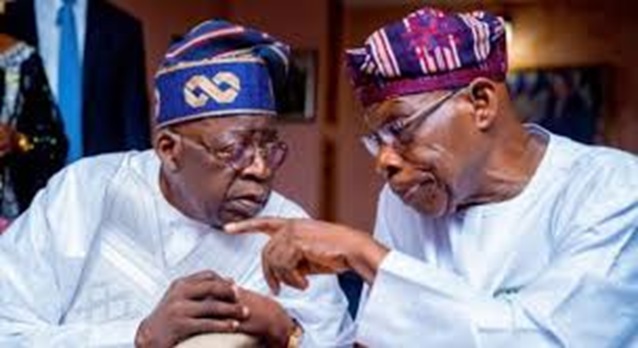By El-Okene Adabara Abduljelil.
The political history of Nigeria shows a concerning pattern of neglect and marginalization of the Ebira ethnic group by Yoruba leaders who have occupied the presidency. This is not a baseless sentiment—it is evident in appointments, power dynamics, and the consistent sidelining of capable Ebira individuals from national decision-making tables. From the era of former President Olusegun Obasanjo to the current administration of President Bola Ahmed Tinubu, the trend has been the same, if not worse.
Obasanjo’s Era: Ebira Voices Silenced
During the tenure of President Olusegun Obasanjo, the people of Kogi West, particularly the Okun Yoruba-speaking axis, were heavily favored. They produced top-level ministers such as:
Prof. Eyitayo Lambo – Minister of Health
Kola Jamodu – Minister of Industry

Barr. Bayo Ojo (SAN) – Attorney General and Minister of Justice
Gen. David Jemibewon – Minister of Police Affairs
Meanwhile, Kogi East also benefited politically, with:
Senator Ahmadu Ali – National Chairman of the PDP
Chief John Odawnwu – Kogi State PDP Chairman
In stark contrast, the Ebira people had no significant federal appointment or influence despite having capable and qualified leaders. Even Senator A.T. Ahmed, a distinguished politician from the central zone, was denied opportunities for lucrative or strategic legislative roles. It was as though the Ebira simply did not matter in the national scheme.
Tinubu’s Era: Another Round of Exclusion
Today, under President Bola Ahmed Tinubu, history is once again repeating itself. If not for the timely intervention of late President Muhammadu Buhari, the Ebira people might never have produced a state governor. President Tinubu had strongly backed late Prince Abubakar Audu with the intention of pairing him with his loyal associate, James Faleke, as deputy governor. His involvement in Kogi politics has always been strategic, with his long-term political goals in mind.
Fast forward to now, James Faleke’s visibility is growing in Ebira land, evidenced by the installation of street lights and subtle infrastructural presence. This raises a crucial question: Is Faleke strategically positioning himself to contest the governorship seat of Kogi State come 2027? The signs are clear, and the Ebira people must pay close attention.
Furthermore, under Tinubu’s administration, sensitive federal appointments such as the Sole Administrator of the Ajaokuta Steel Company—located in the heart of Ebira land—were handed over to individuals from Kogi West, further sidelining the host community. Once again, long-time Tinubu allies from the Ebira axis, such as Senator Ohiare and Alhaji Hadi Ametuo, were completely forgotten. These men stood with Tinubu from the days of the Alliance for Democracy (AD) through to the Action Congress of Nigeria (ACN) and into the All Progressives Congress (APC).
To make matters worse, most of Governor Yahaya Bello’s loyalists and allies have been either ignored or displaced within the APC national structure, leaving Ebira interests unprotected at the highest levels of the party.
A Call for Strategic Unity and Vigilance
The Ebira people must learn from history. As 2027 approaches, we must not walk blindly into another era of political manipulation and betrayal. The current political climate suggests that certain powerful interests may attempt to use internal divisions between the Ebira and the Igala to their advantage.
If Tinubu’s government could appoint the son of late Prince Abubakar Audu as Minister of Steel Development without significant input from the sitting governor or Ebira stakeholders, what stops him from repeating the same in 2027?
Why couldn’t a more neutral personality from the Bassa, or even a Yoruba person from outside the power bloc, be appointed Minister of Power—if unity was the aim? Why always bypass the Ebira?
The Way Forward
We must unite and prepare a Plan B. We must develop a strong, inclusive, and strategic political front to safeguard the future of the Ebira nation. 2027 will not forgive the unprepared.
We should begin to mobilize across party lines, engage youth and traditional leaders, and support credible candidates who truly represent Ebira interests—not outsiders backed by distant political godfathers.
Let us remember: No one will fight for us if we don’t fight for ourselves. The earlier we understand this, the better our chances for a strong and secure political future.
– Comrade Adabara Abduljelil El-Okene
Tel.: +2348036415151




